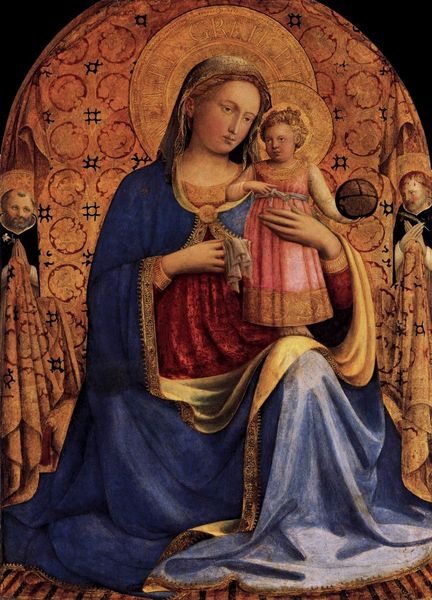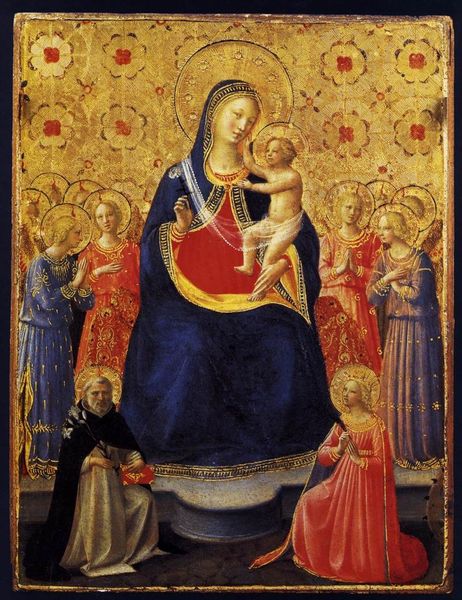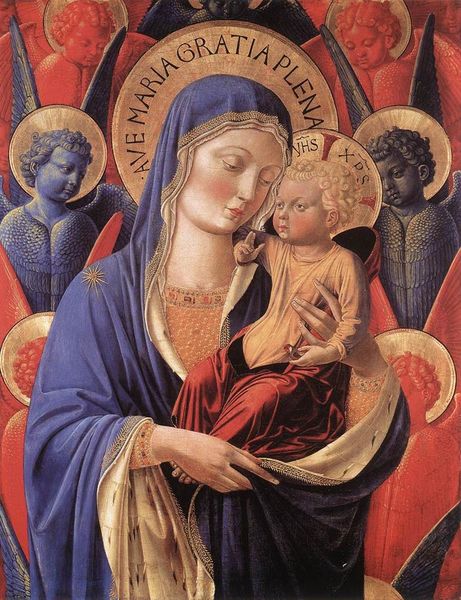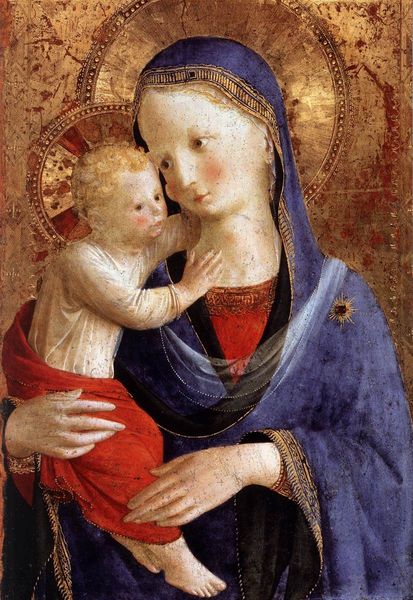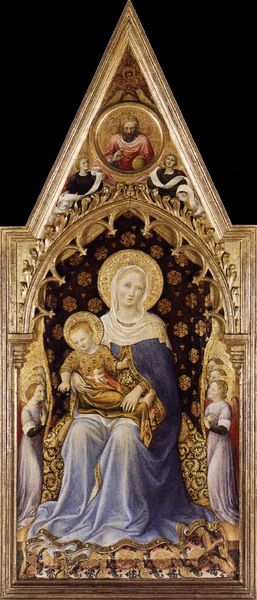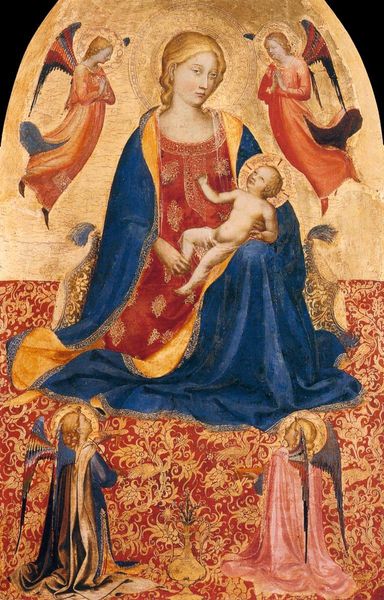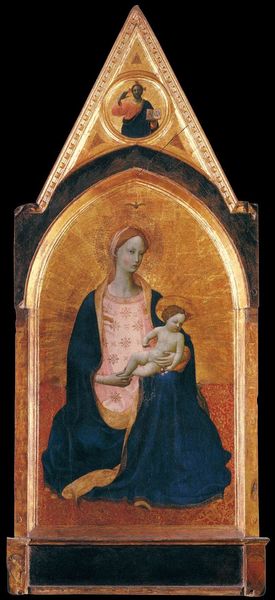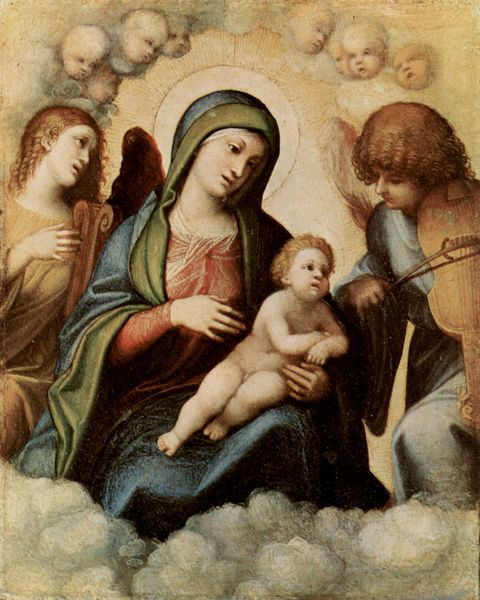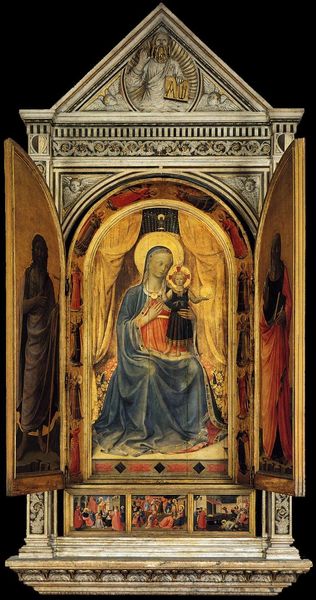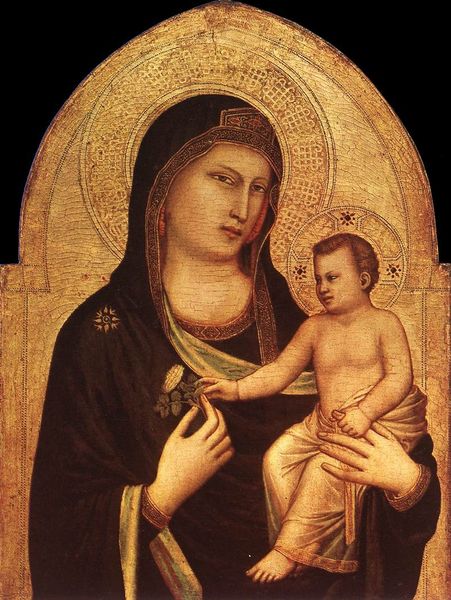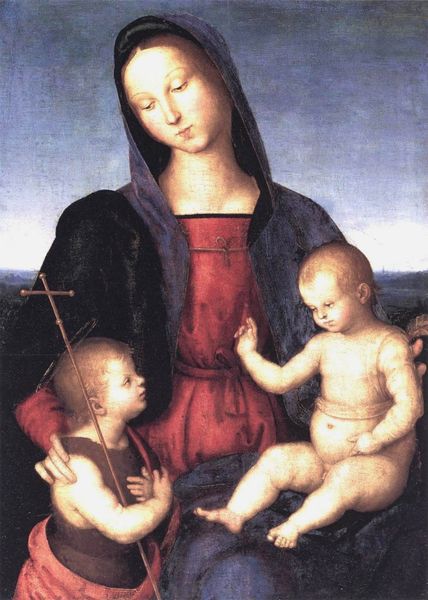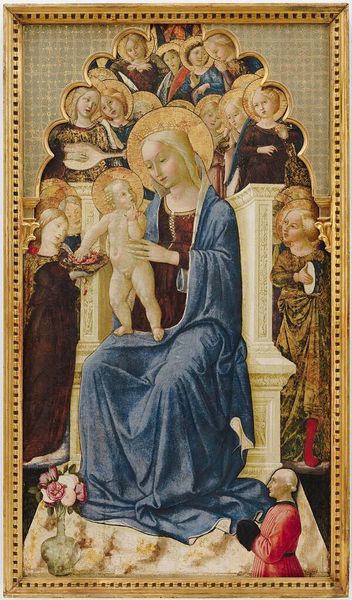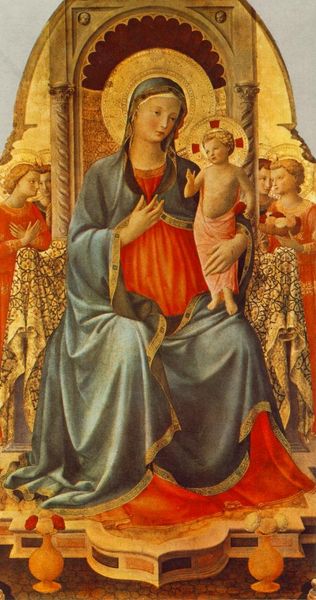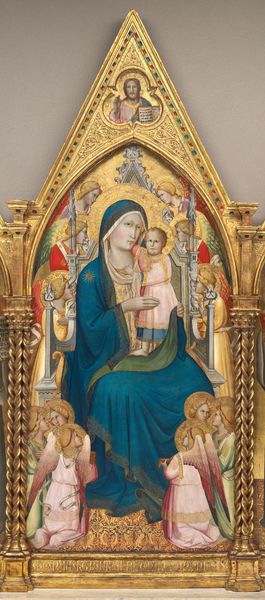
Perugia Altarpiece (central panel) 1448
0:00
0:00
fraangelico
National Gallery of Umbria (Palazzo dei Priori), Perugia, Italy
tempera, painting, oil-paint
#
portrait
#
tempera
#
painting
#
oil-paint
#
oil painting
#
christianity
#
history-painting
#
italian-renaissance
#
early-renaissance
#
virgin-mary
#
christ
Copyright: Public domain
Editor: This is the central panel of the Perugia Altarpiece, made in 1448 by Fra Angelico. It’s an oil and tempera painting, and the Virgin Mary is right there in the center, holding Christ. It strikes me as quite serene, almost dreamlike, with those colors and halos. What symbols or meanings are embedded in the work? Curator: It's a beautiful piece, isn't it? Beyond the obvious, consider the repetition of circular forms: the halos, the arches, even the roses the angels are holding. What do you think that evokes? Editor: Wholeness? Eternity? It feels calming. Curator: Precisely. And think about the gold. What feeling does that impart, especially concerning memory? Editor: Preciousness, certainly, and a connection to tradition and…something beyond earthly. Like these events have reverberated through the ages? Curator: The gold background, the use of hierarchical scale, and the idealized faces of Mary and Jesus all contribute to an image meant to transcend earthly concerns, placing them within a divine, timeless realm. This kind of symbolic communication isn't just pretty; it connects viewers to centuries of shared faith and values. Editor: I hadn't thought about how the composition itself reinforces the timelessness of the figures, a type of collective memory! Thanks. Curator: Exactly. By understanding the symbolism and its historical context, we glimpse how images can create cultural continuity.
Comments
No comments
Be the first to comment and join the conversation on the ultimate creative platform.
